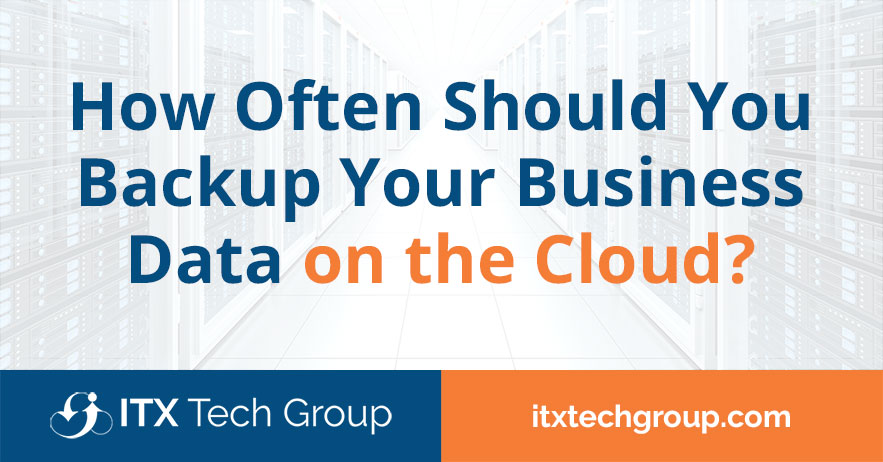In today’s digital era, data is the lifeblood of businesses, and its protection is paramount. Cloud backup solutions offer a secure and efficient way to safeguard critical business data from potential threats such as hardware failures, cyberattacks, or natural disasters.
However, determining the frequency of data backups is a critical decision that balances data resilience with storage costs.
In this blog article, we will explore the factors to consider and best practices for determining how often you should backup your business data on the cloud.
Data Importance and Criticality
The frequency of cloud backups should align with the importance and criticality of your business data.
If your company deals with real-time transactions or highly sensitive information, frequent backups may be necessary to ensure minimal data loss in case of an incident. On the other hand, less critical data may be backed up less frequently to manage storage costs effectively.
Data Change Rate
Consider the rate at which your data changes on a daily or weekly basis. Businesses with rapidly changing data, such as e-commerce platforms or customer databases, may require more frequent backups to capture the latest information.
Conversely, data that remains relatively static may require less frequent backups.
Business RPO and RTO Objectives
Recovery Point Objective (RPO) and Recovery Time Objective (RTO) are essential metrics in disaster recovery planning. RPO represents the maximum tolerable data loss, while RTO indicates the maximum acceptable downtime.
Align your backup frequency with your business’s RPO and RTO objectives to ensure data resilience and efficient recovery in case of data loss.
Business Continuity and Industry Regulations
Certain industries have specific data retention and backup requirements mandated by regulatory bodies. Compliance with such regulations is essential to avoid legal liabilities and penalties.
Tailor your cloud backup frequency to meet the specific requirements of your industry and adhere to compliance standards.
Cost vs. Benefit Analysis
More frequent backups entail higher storage costs. Conduct a cost vs. benefit analysis to strike the right balance between data protection and budget considerations.
Evaluate the potential financial impact of data loss versus the expenses associated with frequent cloud backups. Investing in regular backups may be a cost-effective measure when weighed against the potential repercussions of data loss.
Automated Backup Solutions
Automated backup solutions streamline the process of data protection by automatically scheduling backups at predefined intervals. This ensures that data is backed up consistently without manual intervention.
Implementing an automated backup schedule reduces the risk of human error and ensures data continuity.
Incremental or Differential Backups
Consider using incremental or differential backup strategies to optimize storage and network resources. Incremental backups capture only the changes made since the last backup, reducing backup time and storage requirements.
Differential backups store changes made since the last full backup, providing a balance between storage efficiency and faster recovery.
Wrap Up
Choosing the right frequency for backing up your business data on the cloud is a crucial decision that requires careful consideration of data importance, change rate, business continuity objectives, and regulatory compliance.
Cloud backup solutions offer the flexibility to customize backup schedules to meet your business needs while ensuring data resilience in the face of potential threats.
Conclusion
By aligning your backup strategy with your business objectives and industry regulations, you can create an effective data protection plan that safeguards critical information and allows for efficient recovery in case of data loss.
Utilize automated backup solutions and consider incremental or differential backups to optimize storage resources and streamline the backup process.
Ultimately, a well-planned cloud backup strategy strengthens your business’s data resilience and ensures continuity, supporting your journey towards long-term success and growth.
ITX Tech Group has been serving small, medium, and large scale businesses with their IT support needs all over the United States since 2011, so we’re confident we can provide you with affordable, professional IT solutions for years to come!
Connect with us for a free consultation to discuss your business technology needs.

